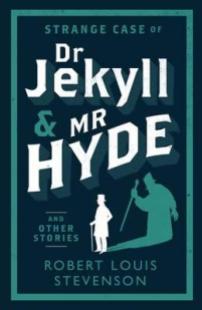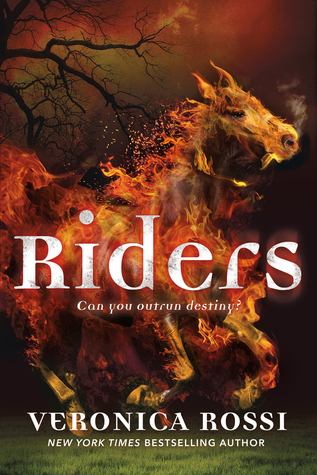Mr. Utterson is the respectable sort of gentlemen lawyer who reserves judgement on his friends.
‘I incline to Cain’s heresy,’ he used to say quaintly. ‘I let my brother go to the devil in his own way.’”
But when his mild-mannered friend-about-town, the beloved Dr. Jekyll, seems to have fallen under an evil man’s influence—one Mr. Edward Hyde—even the reserved lawyer Utterson feels the need to check in. But though Dr. Jekyll assures everyone that all is well with him and Hyde, the lawyer watches his friend’s deterioration and increasing secrecy with grave concern…The Strange Case of Dr. Jekyll and Mr. Hyde is classic adult horror authored by Robert Louis Stevenson and originally published in 1886.
Everyone probably knows the basic happenings of this famous short story, but my post will take the form more of “discussion” and less of a “review,” so if you want to avoid spoilers about the specifics, you might want to skip the rest. My statute of limitations on spoilers ended at “one century old” Lol You could also go read the story right now (it’s short and free on Kindle!) and come back when you’re finished. Otherwise, read on, reader, at your own peril *evil cackle*
Thoughts (Spoilers Ahead):
We read the “strange case” through the eyes of Mr. Utterson. Slowly, occasionally ponderously, but always in that charming 19th century way, he tells us of a brutal murder committed by Mr. Hyde, who then disappears without a trace. He describes Dr. Jekyll’s subsequent deteriorations and disappearance. And, finally, through heavy use of the “confessional missive” trope so popular during this time, he learns—and we learn—the details of Dr. Jekyll’s demise.
In fact, Dr. Jekyll’s own letter tells the full story. He describes his life as,
nine-tenths a life of effort, virtue and self-control.”
But that remaining 1/10th of “badness” manifests as Mr. Edward Hyde, a degenerate through whom Dr. Jekyll allows his baser instincts to rule and be separate from his “good” self. I say “allows” because he must take a potion to induce his transformation into Hyde…at least, in the beginning. But when he transforms, Mr. Hyde runs wild, spending himself in moral filth. Jekyll feels no fear or disgust in looking at his baser nature, as others do. For,
This, too, was myself.”
At least, he feels that way…in the beginning.
As time wears on and Jekyll finds himself relaxing into and enjoying the freedom of Hyde’s reign, he suddenly begins changing into Hyde—without taking the potion.
Uh oh.
Under this strain of continually impending doom and by the sleeplessness…I became, in my own person, a creature eaten up and emptied by fever, languidly weak both in body and mind, and solely occupied by one thought: the horror of my other self.”
That line contains all the real horror of the situation, to me. He knows what’s coming, and he dreads it, but he can’t stop it anymore. His repeated choice to transform has finally become his chosen status quo. A habit.
Stevenson’s tale is more than a moralistic tale, of course. It’s a psychological discussion about the struggles inherent in human nature. It might even be a metaphor for something specific beyond a “habit of being,” such as a cocaine/opium/laudanum habit (Jekyll takes a potion to become his “bad self,” after all) or some other vice. I’m not familiar enough with Stevenson’s life to know what he might be talking about lol
And of course it’s a horror story. I think the horror comes from the knowledge that Dr. Jekyll’s choice belongs to all of us: this is every man’s and every woman’s choice. We can all choose to free our baser instincts when we think we can get away with it and avoid besmirching our “good” selves. But soon, we lose the choice—soon it comes alive and chooses for us.
*shiver*









 nd now she has to trick him—just to escape with her life? It made my heart hurt just thinking about it!
nd now she has to trick him—just to escape with her life? It made my heart hurt just thinking about it!

